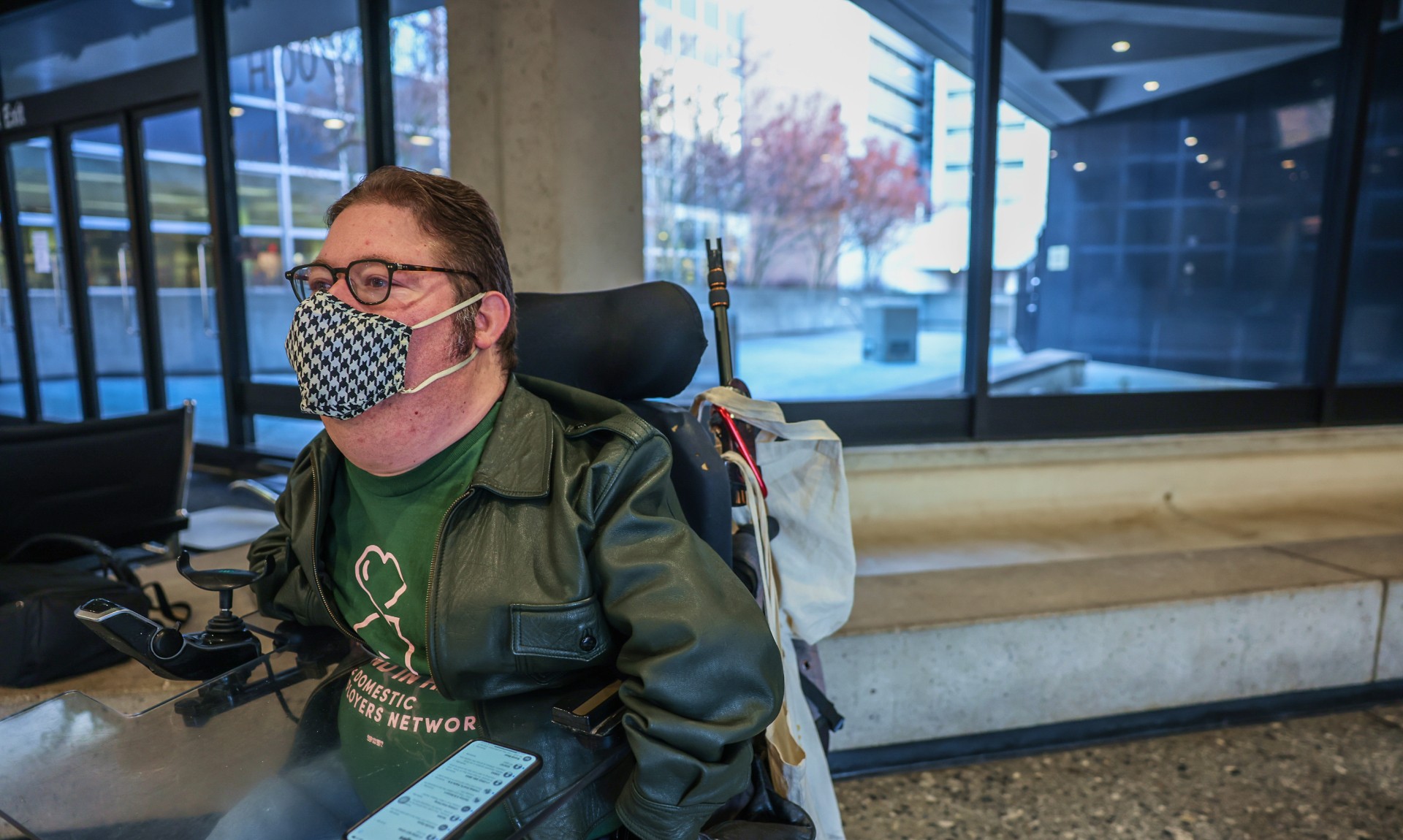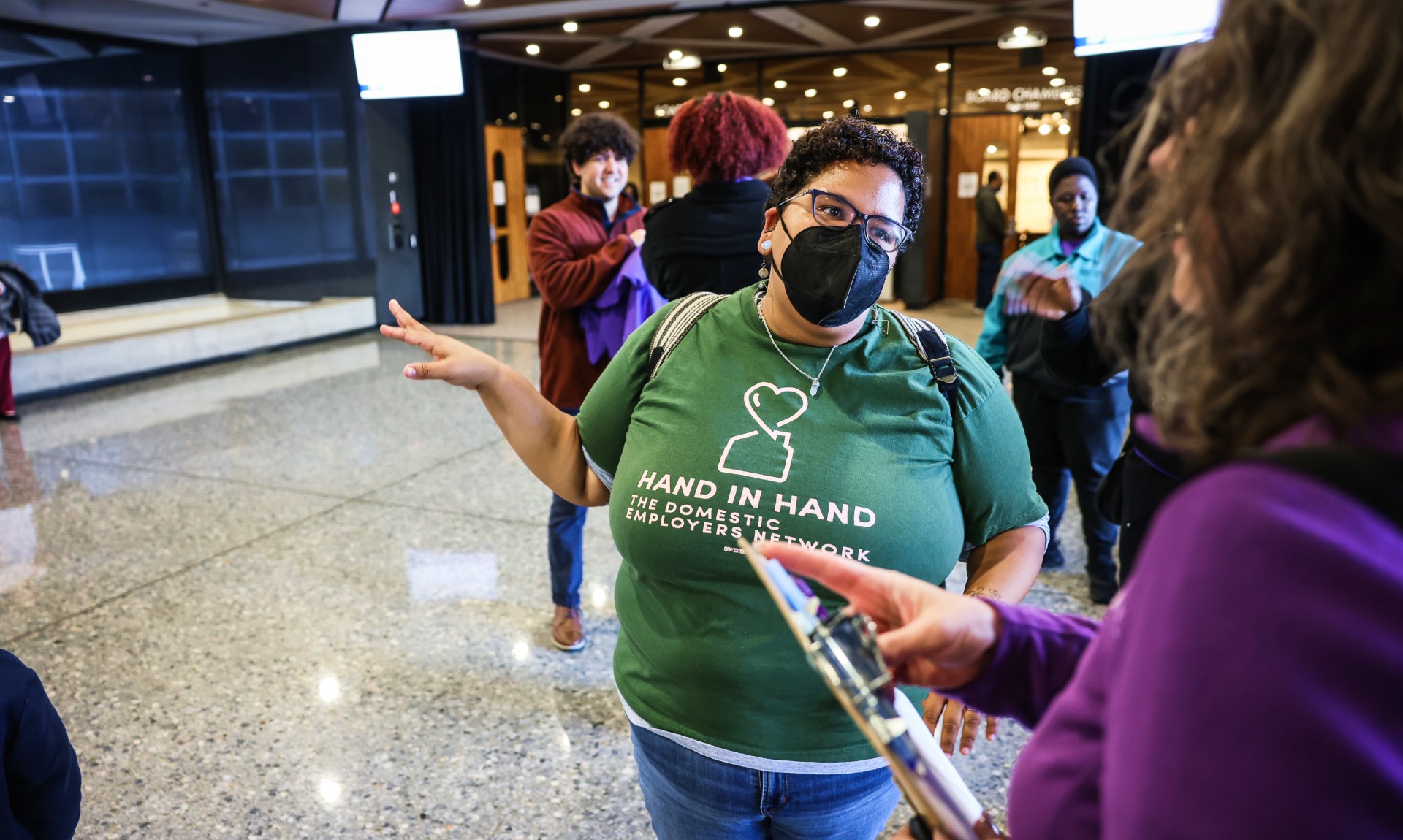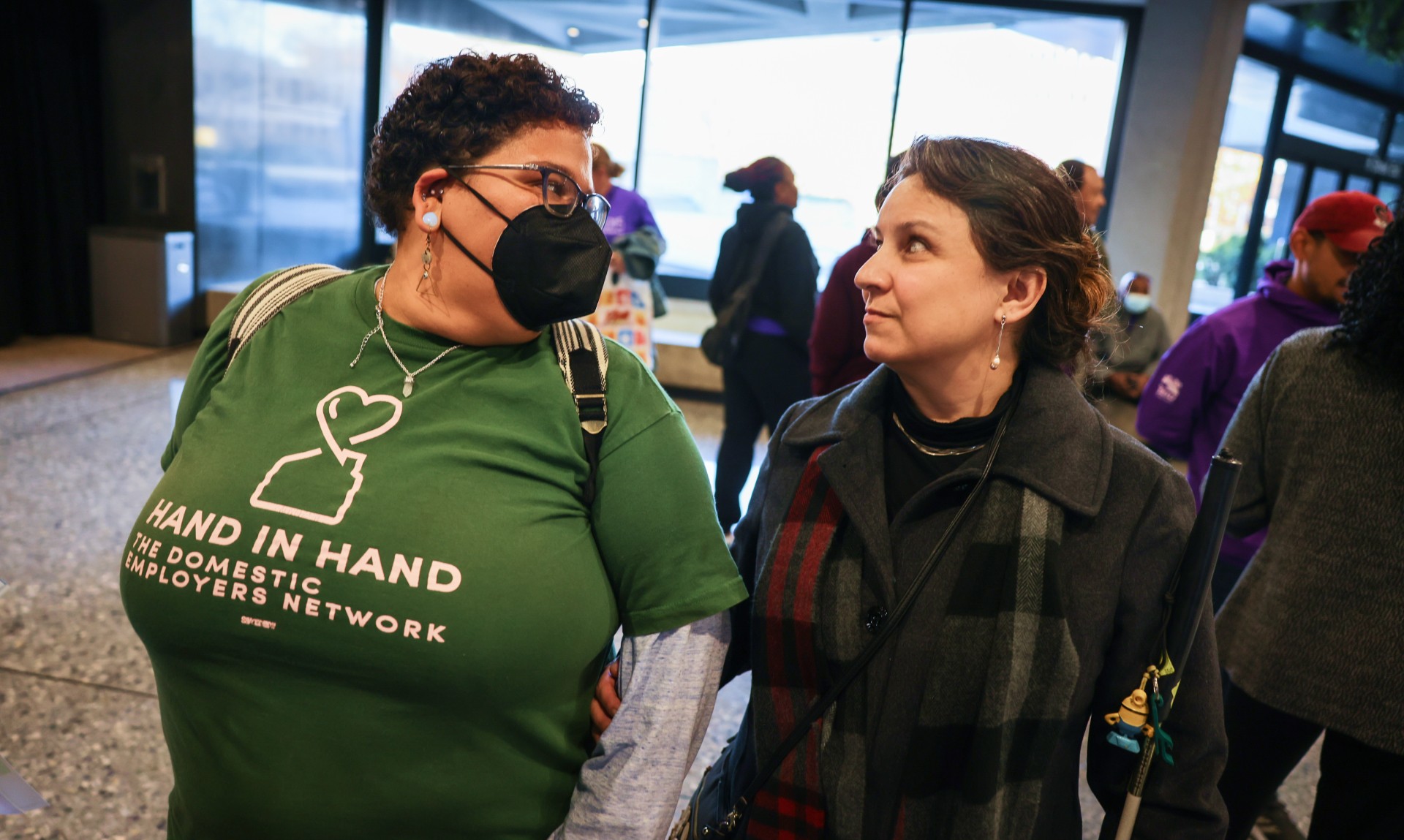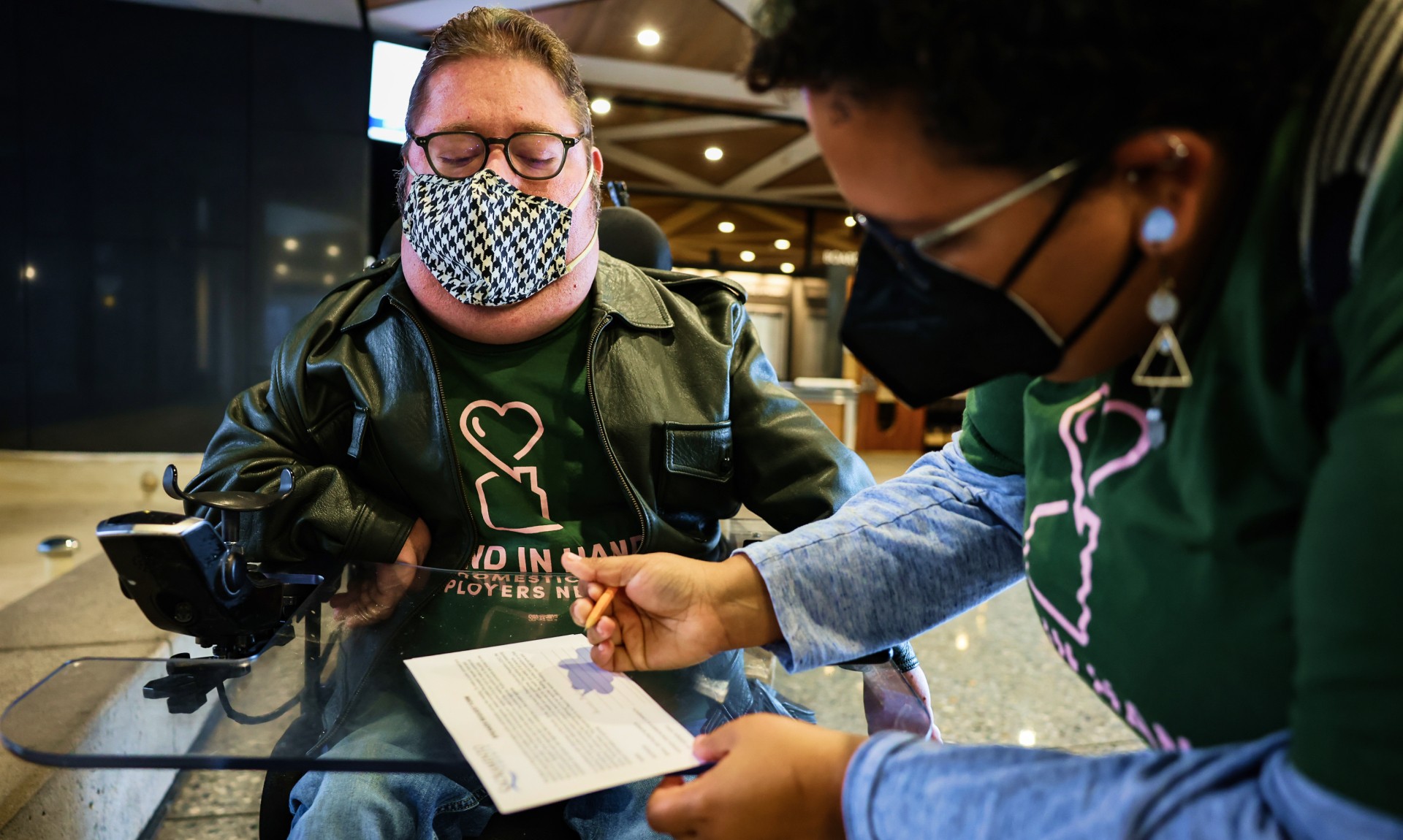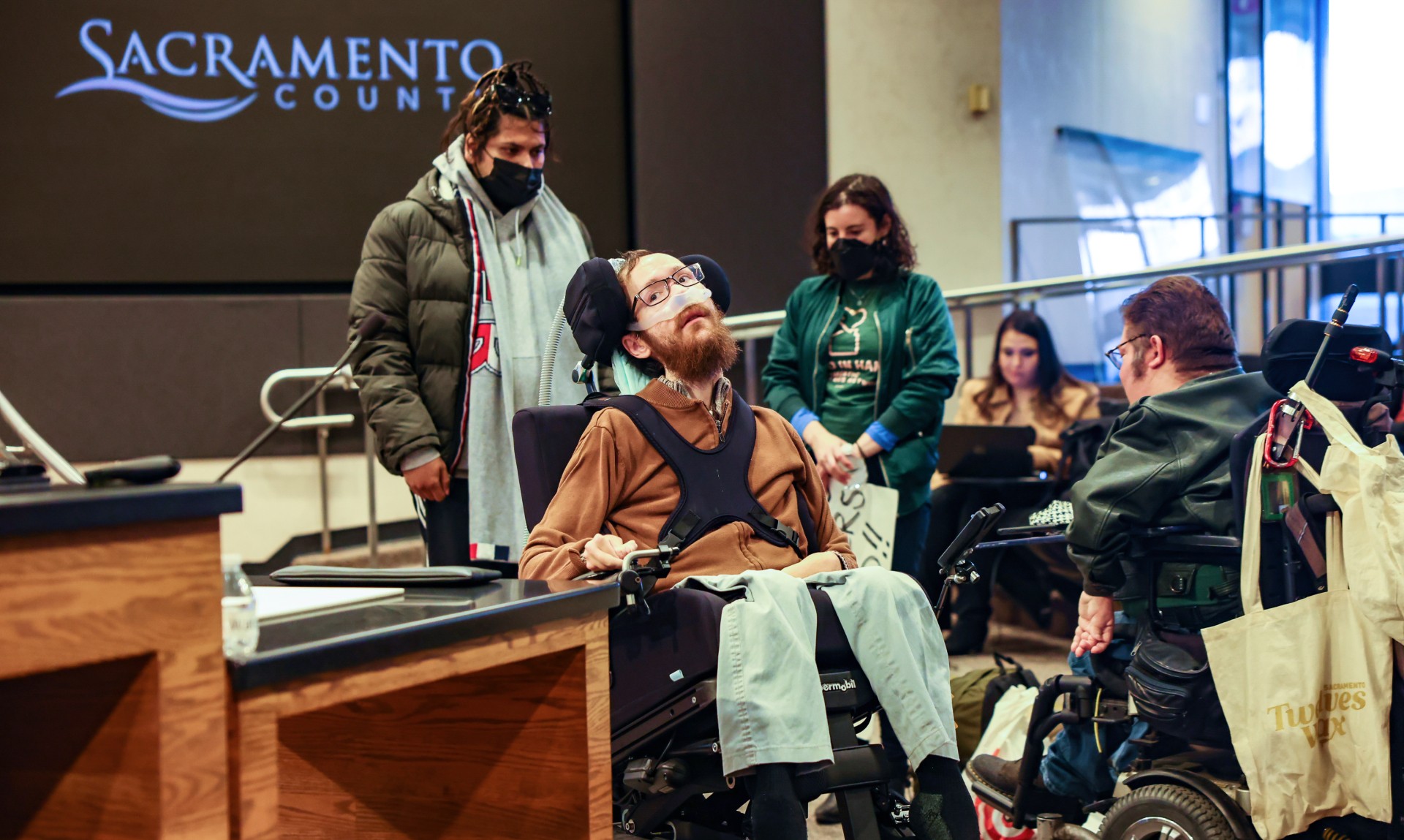Fighting for Elder Care Workers’ Rights and Wages
People are living longer than ever, and most of us will need care at some point. Yet, a shortage of paid workers, significant long-term care costs, and lack of social insurance is fueling a long-term crisis for elder care. At the same time, caregiving has historically been undervalued and underpaid due to a history of racial and gender disparities.
To address these compounding challenges, and so that caregivers can be supported and valued with a living wage for their work, Metta Fund partners with grantees like Hand in Hand: The Domestic Employers Network* (HIH).
Hand in Hand is the only national organization in the country that works to increase job quality and dignity for domestic workers through strategic initiatives targeted toward the individuals who employ them. As part of the California Domestic Workers Coalition, HIH works on creating a portable benefits program so that domestic workers can access the paid sick days they are entitled to, but rarely receive. A portable benefits system for paid time off would ensure domestic workers can access the benefits they deserve.
Additionally, in California, HIH has focused efforts on a Long-Term Services and Supports (LTSS) for All Grassroots Coalition to increase access and affordability of home and community-based services for older adults and people with disabilities. These efforts directly impact elders and their access to care while also creating good jobs for home care workers.
“Low IHSS wages create a negative ripple effect for both IHSS providers and recipients. It is so challenging to find homecare providers who will accept IHSS wages, that the homecare benefit becomes almost meaningless.”
This year, HIH is most proud of campaign wins that demonstrated the power of workers and employers coming together to create policy and culture change for more equitable care systems. Aligned with Metta Fund’s caregiving priority, HIH has been organizing and winning campaigns to improve the In-Home Supportive Services (IHSS) homecare program in
California.
Recently, HIH gathered in Sacramento with IHSS homecare consumers/recipients and key labor allies and providers to organize, educate, and advocate for higher wages for publicly funded IHSS workers. Better wages for providers means better care for homecare recipients and workers.
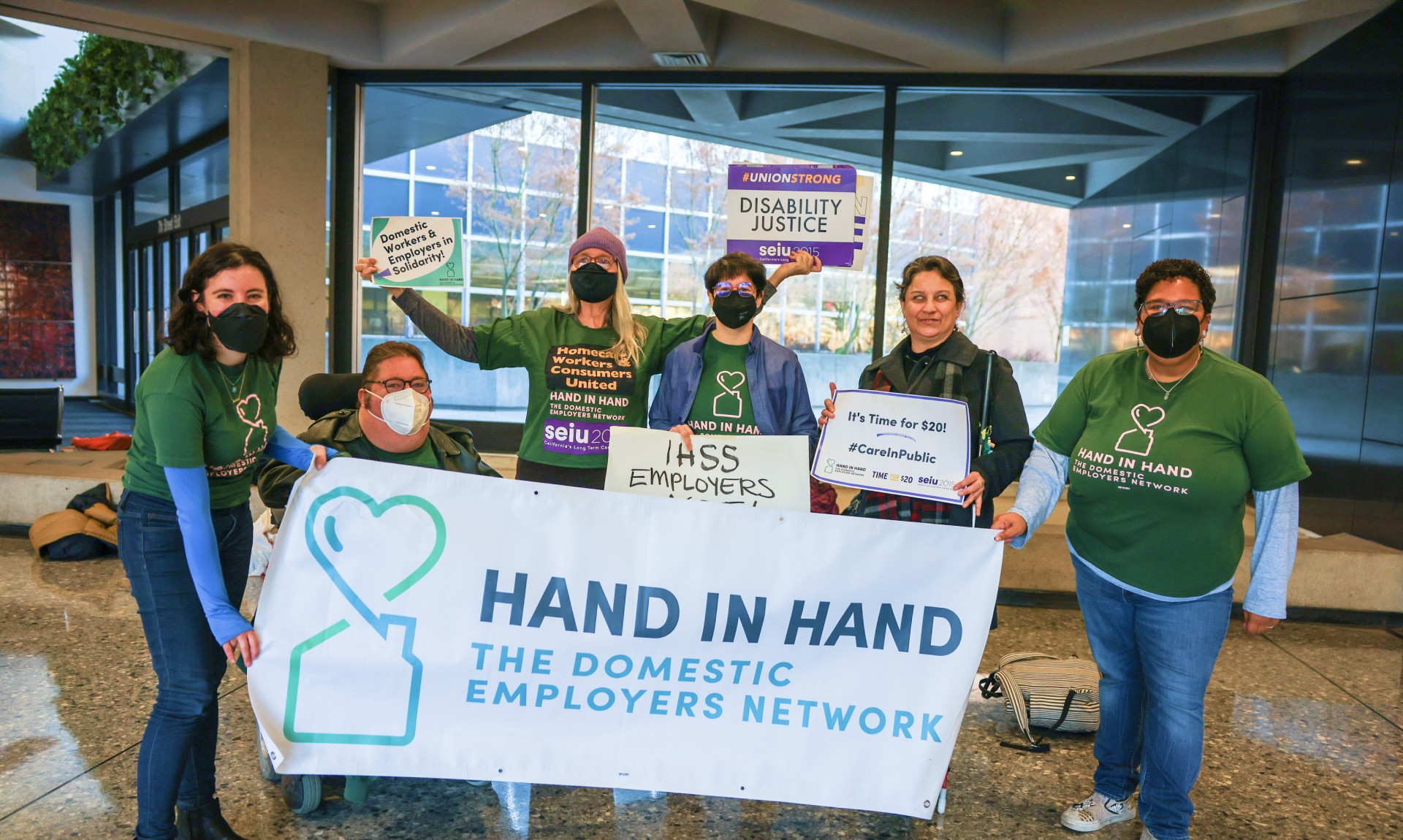
Strategic allies like Katie Savin detailed the problem with homecare benefits, and made the case that sustaining wages for workers increases access to support at home for consumers: “Low IHSS wages create a negative ripple effect for both IHSS providers and recipients. It is so challenging to find homecare providers who will accept IHSS wages, that the homecare benefit becomes almost meaningless.”
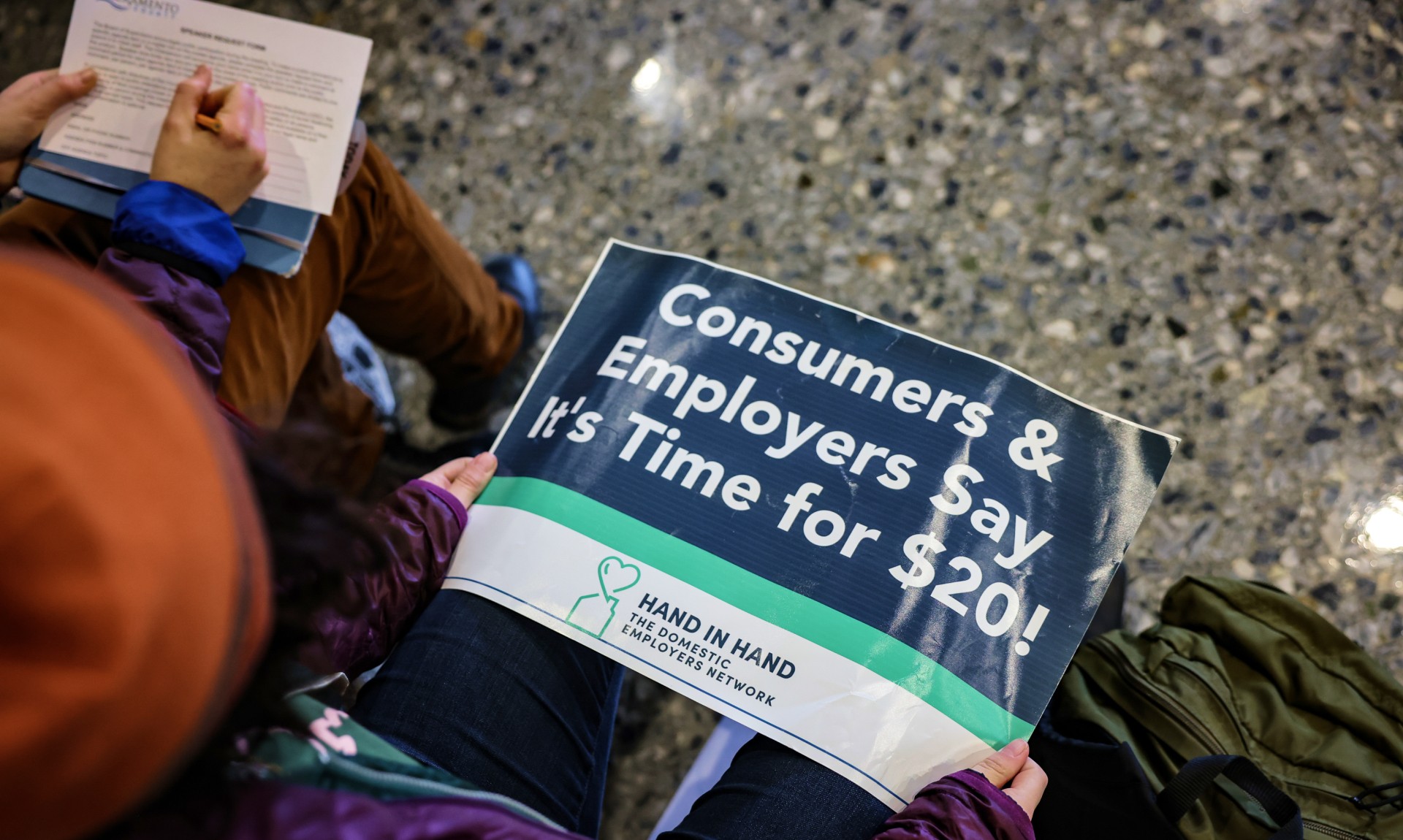

Another Hand in Hand affiliated member, Isabel Arreola, Systems Change Advocate at Resources for Independent Living, spoke about the symbiotic significance of IHSS – how recipients of help are empowered by the care they receive because it allows them to go to work as well, doubling the impact of wage support.
“A lot of times it is believed that we are simply recipients of help,” but in fact, “we are also employed people, people who need more than the average amount of time to perform day to day tasks. I can go to work because I have someone to support me in the smaller things… So rather than just having two unemployed people, now you’ve got two employed people, because of IHSS.”
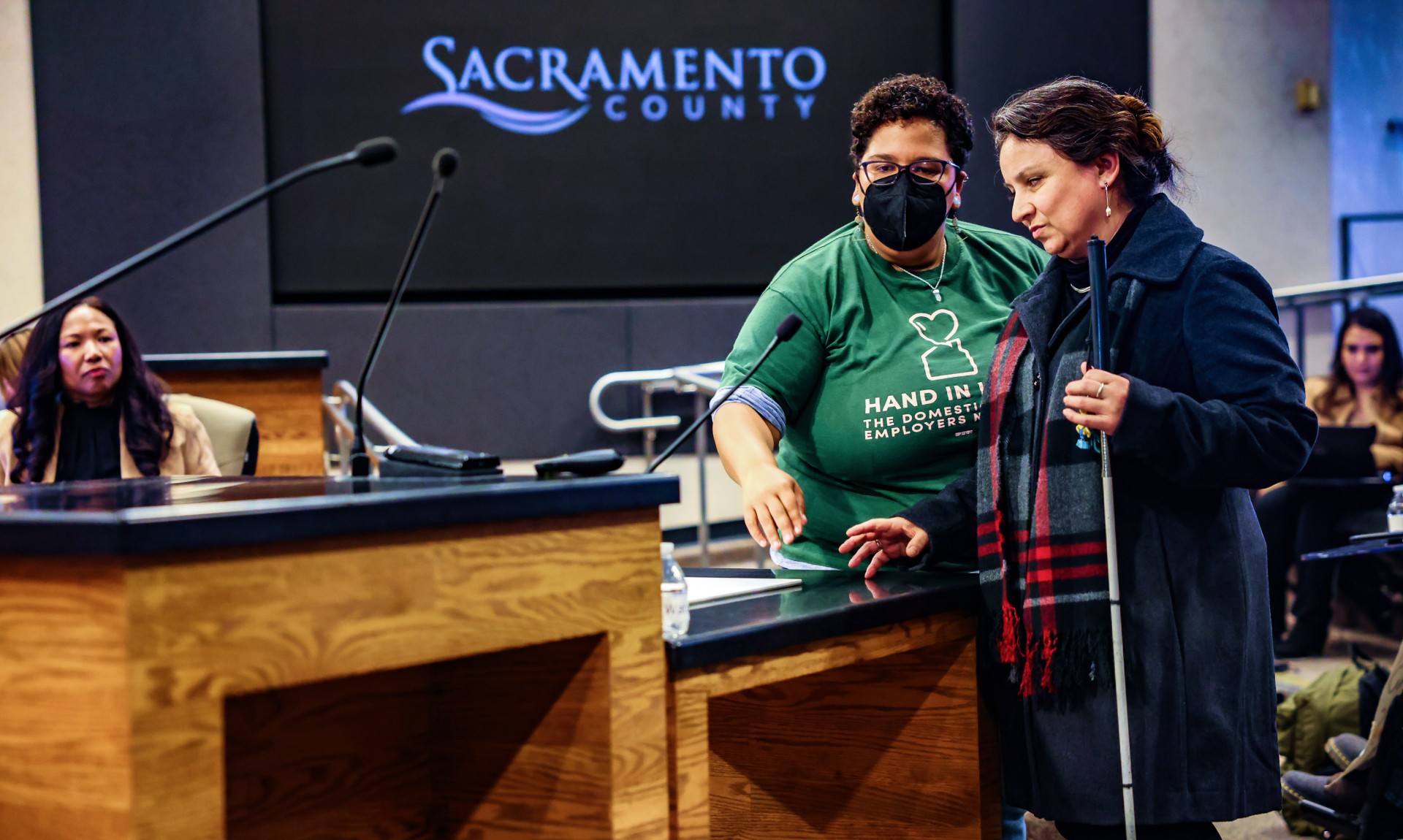
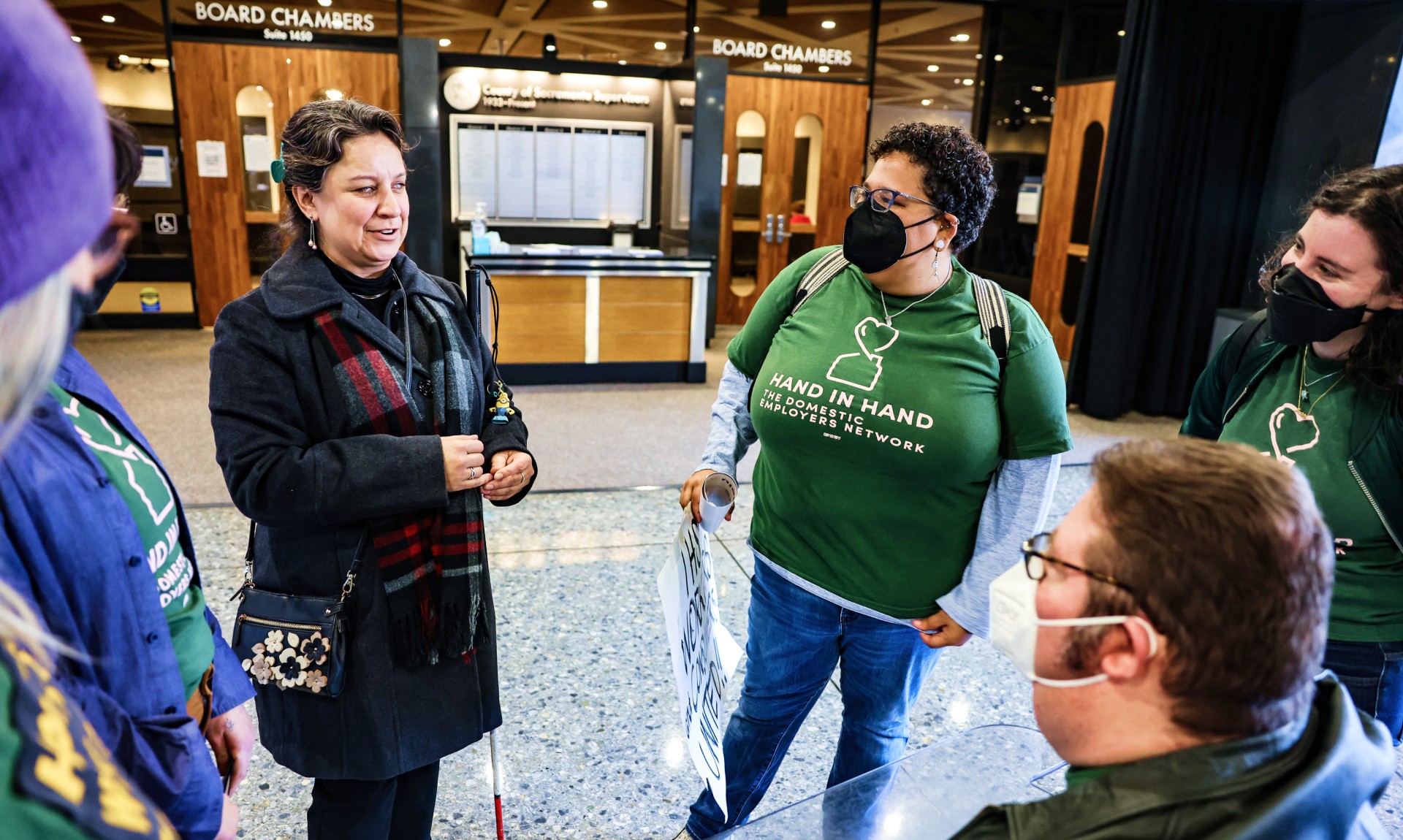
The Board Chair acknowledged the importance of what the IHSS workers do, and Supervisor Phil Serna said that their presence resonated with him.
“I think it’s high time that we make sure that these men and women [who provide care]…are compensated commensurate with that responsibilities,” said Supervisor Serna.
*Hand in Hand: The Domestic Employers Network is fiscally sponsored by Bend the Arc. Photography by Jean Melesaine.
